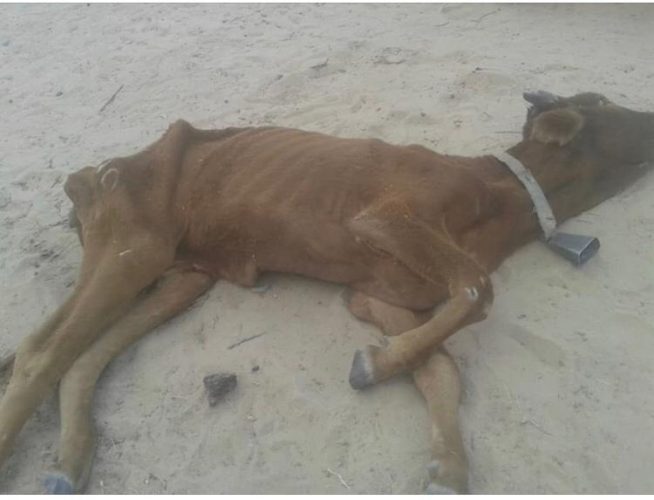Zimbabwe’s government is appealing for aid to help ease the burden of hunger currently affecting millions of already suffering citizens. The drought is a result of poor yields from the 2018/19 summer cropping season which normally runs from November to March. Erratic rains in the whole of Southern Africa resulted in this drought. Zimbabwe has experienced recurring droughts over the years leading to shortage of cereals in the country. Thousands of households have to brace for the high cost of food in the country brought about by the continuing drought and the inflation. The country used to have a multi currency regime but it was abandoned in July 2019 in favor of the local surrogate bond notes known as RTGS dollars.
The country used to be the bread basket of Africa before it embarked on the agrarian reform program at the turn of the century which sought to redistribute land among thousands of landless blacks. Some 300 000 black families are said to have benefitted from the agrarian reform program. Lack of inputs to the new farmers has continuously hampered meaningful production on the farms. The situation has been further exacerbated by allegations that the program was just a political gimmick to appease hundreds of ruling party supporters who were increasingly becoming restless by the day. Although there are success stories from the land reform, most of these “new farmers” have done very little to help the country realize better yields.
Another factor that militates against good harvests is the reluctance by farmers to adopt conservation methods that were introduced in the country. Although these methods were proved to be beneficial, the uptake was very low. Over a decade ago, FAO introduced conservation farming in Zimbabwe. Some pilot projects were carried out in certain parts of the country and the results were impressive. However, the subsistence farmers who are the bulk of the farmers in the country did not pursue this method of farming which many farmers said was labor intensive. The country has witnessed recurring droughts for over a decade and it is clear that if droughts are to be averted, farmers (particularly the subsistence) will have to adopt conservation ways of farming and do away with conventional systems.
Harvesting water during the rainy season is another way that could help the country ensures food security. A lot of rain water goes to waste because farmers are either not aware or lack the means to harvest the rain water. Farmers currently rely mainly on rain to grow crops. Constructing small dams in farms and using underground water are also ways that could help farmers grow their crops even in dry season.
In 2016, the government, through the Ministry of Agriculture, Mechanization and Irrigation Development (MAMID), introduced what it called Command Agriculture, targeting farmers in the cropping side as a way of boosting food production. Under the scheme, farmers were to register to receive inputs from suppliers on credit and pay back the inputs after selling the produce to the Grain Marketing Board (GMB). The government’s target was 5 tons of maize per hectare. The scheme was successful in 2017 because the rains were good. The general feeling is that if such programs are well managed the yields will increase and thereby ensuring food security in the country.
Denis Ngwenya is a program officer for a youth radio initiative in Zimbabwe, YFM.


Permalink
I discovered it and I’ll be book-marking it and check